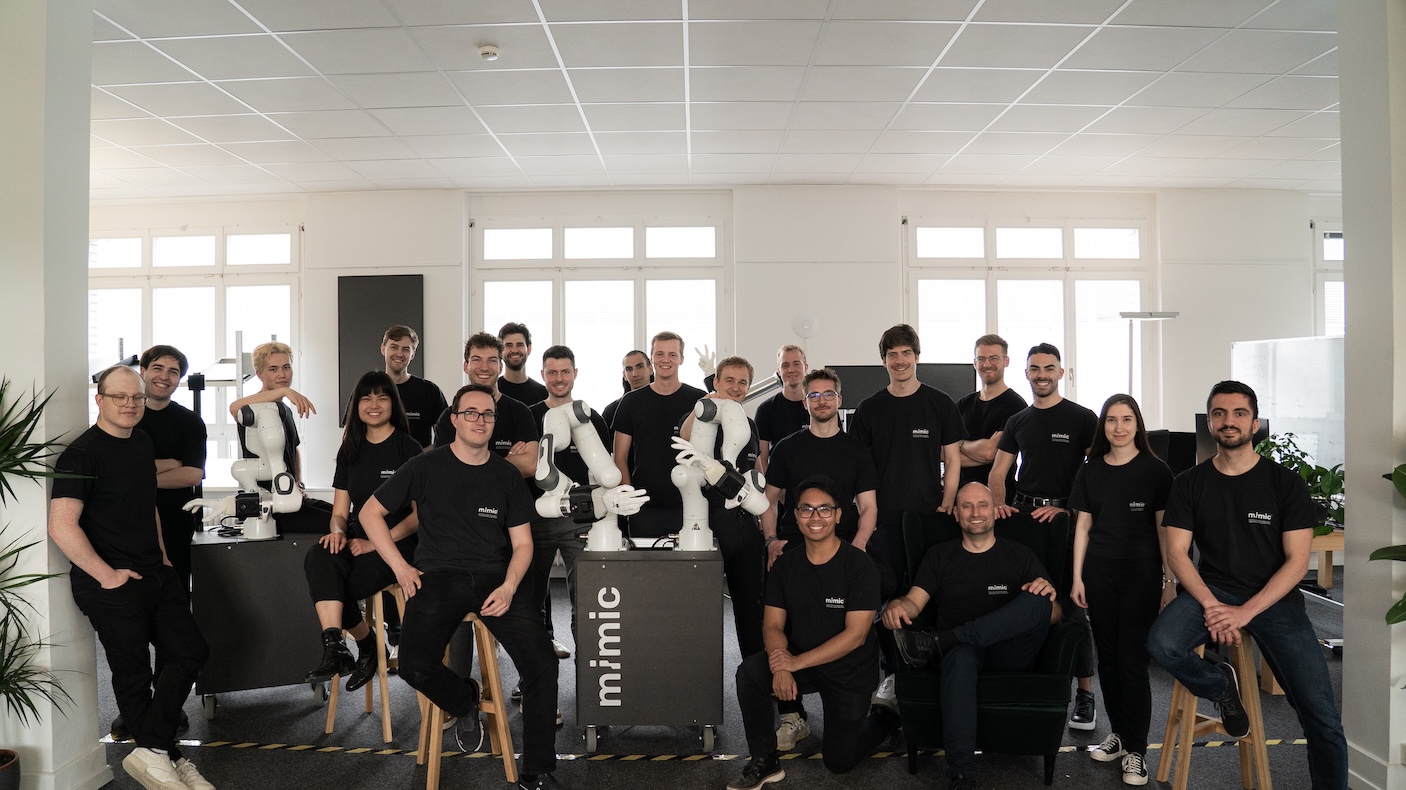Digital Health in Europe: How the UK is Leading the Digital Transformation of Healthcare
This article is part of Digital Health in Europe: A Data-Driven Blog Series by Speedinvest. Building on our analysis of 600+ Digital Health startups founded in Europe in the last decade and our overview of the French, DACH, Southern Europe, Benelux and CEE digital health startup ecosystems. This blog post is the first attempt to systematically chart the digital Health startup ecosystem in the UK region.
The United Kingdom is home to the largest number of digital health startups founded in Europe between 2010 and 2020. 182 companies have been founded and funded since 2010. With €3.5 billion invested into these companies, the UK ranks first in terms of total funding in Europe. It is a mature market with an average of €20 million invested per company. To put it into perspective, that number is around €8 million for the DACH region, the second most active digital health market in Europe.
Startup activity in the UK digital health space has continuously increased during the past years. The UK's leading role in research, the unique role that the NHS plays, and the flywheel effect from the overall startup ecosystem all played a part.
Related Reading: Top Early-Stage European Healthtech VC Funds
The data: 182 startups that shape the Digital Health ecosystem in the UK
The aim of this blog is neither to be exhaustive nor to rank startups, but rather to chart the rapidly expanding UK digital health startup ecosystem. Check out our methodology blog for our inclusion/exclusion criteria. In a nutshell: We’re only including companies that build health-focused software, have some form of VC or angel funding and were founded in the last eleven years. We’ve used Dealroom.co, Crunchbase and our own CRM as the main data sources.
If your company is not on the map and you’d like to be included, please fill in this form and we’ll add you!
.jpg)
Enabling Tech
Companies in this segment give healthcare providers, payers and professionals horizontal tools that facilitate their job and make health delivery more effective.
One sub-segment is tools for healthcare staff that allow them to be efficient, such as Medishout, a workflow optimizer for healthcare staff, Infinity Health, a healthcare task management platform for staff and Lantum, who reduces spend and empowers healthcare staff.
Some sub-segments focus on facilitating healthcare communication. Pando and Medic Bleep built tools for communication between clinicians, while Anima and Visionable facilitate online consultations. Terra allows easy access to patient data through an API for wearable integrations. Our portfolio company Elephant Healthcare develops connectable applications that improve access to care and save lives.
Other startups include healthcare job platform Locate a Locum, VR educational platform FundamentalVR and Isla, who is augmenting health records with visuals.
On-Demand & Generalist Care
On-demand care startups give users convenience and help providers efficiently manage and triage patients. Most players in this space connect patients with healthcare providers digitally. Examples include Babylon, the first European digital health startup going public (read more about European digital health exits here), Zava, HealthHero, Qured, PushDoctor, VideoDoc and ZoomDoc.
Pharma Enablers
The UK is home to many companies that develop tools for clinical trials. Vinehealth, IgniteData and Aparito focus on patient data collection. Lindus Health, Causaly and Pharmaseal are developing tools to accelerate and manage clinical research, while Neucruit and uMed focus on patient recruitment.
Other startups such as FarmaTrust, Veratrak and Talking Medicines are aiming to digitize the pharmaceutical business and provide tools to increase efficiency. Healthera and Medino are digitizing pharmacies and allow patients to order drugs for home delivery. Lifebit raised $70 million to help organizations make their biomedical data usable.
Some successful players focus on research and development for new drugs. Benevolent AI raised $292 million to build a computational R&D platform, Exscientia raised $474 million and Healx raised $68 million to use AI for drug discovery and Genomics raised $90 million to transform healthcare through the power of genomics. Terra Lumina takes a different approach and is targeting natural compounds for drug discovery.
Consumer Health
While this is a broad category, we find that most companies in this space fall into two main buckets.
First, startups that focus on fitness and nutrition: Some examples are fitness apps Fiit and FitWell, supplements brand, Vitl, DNA testing for fitness, Fitness Genes, and the healthy meal delivery company, Detox Kitchen.
Second, direct-to-consumer: This bucket also has multiple verticals, such as Skin+Me in the skincare space, AKT and Fussy in the hygiene space.
Sex-Specific, Family and Sexual Health
This could be seen as a sub-category of Specialized Care that focuses on startups that specifically tackle Women, Men, Family Health and Sexual Health.
Women’s Health is an exciting sector that has seen an influx of companies in recent years. One of the pioneers of the space is Elvie, who raised $150 million to develop smarter technology for women. There is also Clementine, a hypnotherapy platform for sleep, confidence and anxiety and Juno Bio, who offers at-home tests to decode and gain insights from your vaginal microbiome. In the menopause space, Vira Health is a digital therapeutic for menopause, while Bia Care is building the modern menopause clinic.
Not to be outdone, on the men’s health side of the equation, we see Manual and Numan offering services such as online consultation and personalized treatments delivered to your home.
Moving on to the fertility space, we see companies such as the general fertility support tool, Fertility Circle, and at-home insemination kit provider, Béa Fertility. Tuune and The Lowdown help women find birth control tailored to their hormonal profiles. Hertility Health is a provider of at-home hormone and fertility testing. On the employer's side, Peppy and Fertifa offer workplace benefits for couples who struggle with fertility issues. Gaia makes IVF treatments more accessible.
Taking a step back from fertility, we take a broader look at general menstrual health. The menstrual health space can be divided into two main buckets. First, digital solutions, such as Flo, who raised $75.5 million to help women track their period and ovulation. Second, physical period care products, including andSisters, Daye, Callaly and Jude.
On the family health side, we see parenting apps such as Bloss, which connects parents with experts, Onoco, a family organizer, and Kami, a parental wellness app for the workplace. In addition, Tinto and Peanut are building communities where mothers can support each other.
The last bucket in this group is sexual health. This includes startups like Ferly, Kama and Blueheart. Some are focusing on specific markets such as Mojo, a sexual wellbeing platform for men, and LVNDR, who is tapping into the LGBTQ+ sexual healthcare space.
Screening & Diagnostics
This segment includes companies that provide diagnostic and testing services.
The way in which health data is collected has become more diverse. We can see a rise in at-home testing providers driven by (1) increased access and convenience and (2) the stigma around topics like sexually transmitted diseases. Thriva, Rightangled and Forth are part of this category, offering at-home blood tests kits. Sanome uses a combination of biomarkers to detect the very earliest signs of disease and TestCard focuses on UTI testing. Tuli Health is making diagnostics more convenient by allowing people to test in local pharmacies.
Other players, such as Novoic, can detect neurological diseases by analyzing speech, while Cytox and Mindstep developed risk assessment and patient stratification tools for Alzheimer's disease and dementia.
Some companies leverage AI for more accurate and faster diagnostics. Congenica raised $82 million for a genomics analysis and clinical decision support tool, and Brainomix raised $35 million to develop an AI platform that automates validated imaging biomarkers. Skin Analytics focuses on dermatology screening, while Sano Genetics allows you to contribute to research based on your health and DNA. Our portfolio company, Thinksono, enables any healthcare professional to assess deep vein thrombosis.
Specialized Care & Digital Therapeutics
This category includes platforms that help patients tackle a specific condition. The treatment of chronic disease is one of the biggest cost factors for healthcare systems and, in turn, attracts a lot of attention from tech players.
Our portfolio company Second Nature develops an NHS-backed, digital lifestyle change program that helps you transform your health, fitness & mindset forever. Careology is a digital cancer care platform. Inflow is a self-help app to manage ADHD. Bold Health is revolutionizing gut care and Sapien Health is a virtual program that helps people prepare for surgery. Changing Health is another digital health platform for chronic disease management. Five Lives is building digital tools for the tracking and improvement of cognitive health.
Elderly Care
Between 2000 and 2019, life expectancy has increased globally by more than six years (WHO) which means that the population is growing older. Following this trend, we see more and more companies tackling problems in the elderly health space.
Many startups in this space enable better at-home care. Perhaps the best-known success story is Cera which raised $92 million for a caregiver recruitment platform. Elder, Lifted and Hometouch connect elderly people with at-home caregivers.
Other startups, such as OnCare and Birdie, are digitizing home care, including patient information, payroll and invoicing. Lottie and Care Sourcer help the elderly find UK’s best care homes at a fair price.
Patient engagement
This bucket includes startups that facilitate interactions with patients. accuRx raised $50 million to build healthcare communication solutions and is used by 98% of all NHS GP practices. Lumeon raised $88 million to build tools that can end fragmentation in healthcare delivery. Basma is a dental startup that allows patients to receive doctor-directed treatment directly from their homes.
We’ve also included remote patient monitoring platforms that allow at-distance care. Examples are Huma, Doctaly and our portfolio company, Doccla, as well as Current Health, who was recently acquired by consumer electronics retailer Best Buy.
Aide Health focuses on chronic disease patients and uses conversational AI to improve patient engagement and clinical assessment. Concentric Health digitizes patient consent, Appt Health is a call and recall service for primary care and Findoc is a health consultation booking platform.
Mental and Behavioral Health
We’re excited to see the growing number of mental health companies in the UK.
As poor mental health costs employers between £33 billion and £42 billion a year, we see many companies adopting digital solutions to support their workforce. Unmind, Fika, Plumm and Spill offer mental health support to employees through online therapy, meditation and content. One of the success stories in this vertical is Quit Genius who raised $78 million to offer personalized addiction treatments to employees.
Others, such as TalkLife, HelloSelf, MindLabs and YCombinator alumni Iona Mind, increase therapy access for consumers, while Oxford VR delivers care through VR. Compass Pathways raised $116 million to transform the patient experience in mental health care, as well as accelerate patient access to evidence-based innovation in the space. Lumenate takes a slightly different approach by facilitating tech-assisted psychedelic experiences.
Did we miss you? Want to know more?
We started our series on Digital Health in Europe because, to date, there has been way too little coverage of this exciting sector in Europe. While trying to be as comprehensive as possible, we probably missed some great companies in the map above. If your company is not on the map and you’d like to be included, please fill in this form and we’ll add you!
If you have any questions or would like to comment on any of the content above, please feel free to reach out to Andrea Zitna or Daria Gherghelas.
Read more from Speedinvest's Digital Health series:
- Digital Health in Europe: The Untapped Potential of CEE
- Digital Health in Europe: Southern Europe is Picking up the Pace
- Digital Health in Europe: Reforms are Accelerating the DACH Market
- Digital Health in Europe: The Landscape in France
- Digital Health Exits in Europe: 10 Years Just Happened in 12 Months
- Digital Health Exits in Europe: Q1 2021 Update
- Digital Health Exits in Europe: End of 2021 Update
Authored by Daria Gherghelas from the Speedinvest Health team. Reach out -- we’d love to hear from you if you’re starting a digital health company in the UK or elsewhere!
Sign-up to get the latest Speedinvest news, insights and resources right in your inbox.













.svg)
